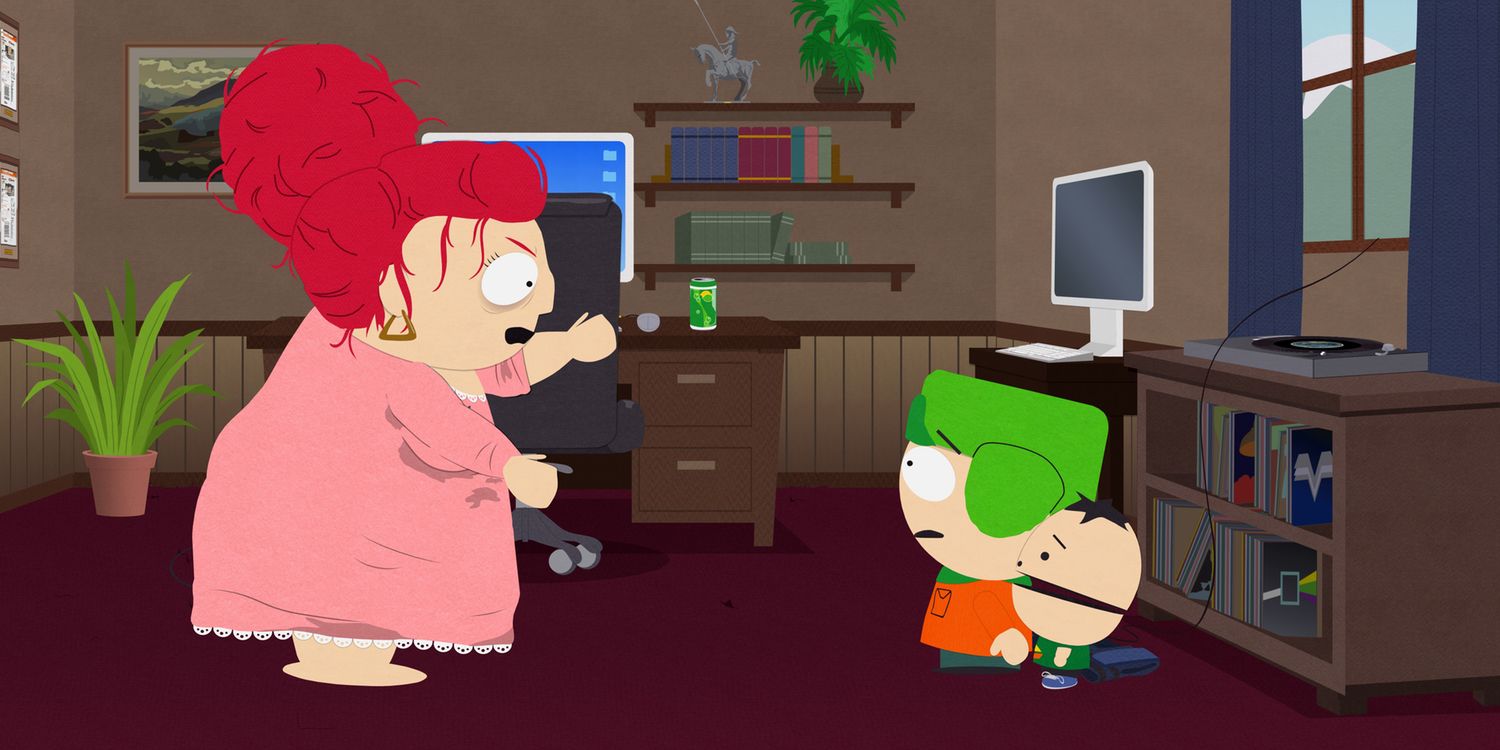South Park has had an interesting season 20. The shift to serialized storytelling has given the long-running series a chance to dive deeper into larger, more purposeful storylines, mostly to its benefit. The season has been dedicated primarily to a story involving internet trolls, which when paired with the recent presidential election and the lingering need of pop culture to mine audience nostalgia for big bucks, made for some of the best real-world fodder the show has had in years. It even afforded series creators Matt Parker and Trey Stone a chance to put the show's production schedule to good use, responding to the outcome of the election with a re-written episode that summed up the show's feelings on the matter with it's new title: 'Oh, Jeez'. In all, it was another example of how relevant the show can still be nearly two decades into its run.
Aside from demonstrating just how nimble and responsive South Park is – especially for an animated series – the overarching storyline that revealed Kyle's dad Gerald to be one of the most virulent internet trolls on the show, and the threat of the Danish program TrollTrace, which led to the destruction of Fort Collins by promising to reveal everyone's past history online, made for an substantial if silly message about reaping what you sow. But the finale follows through on the season's juxtaposition of this line of thinking with an exploration of the ongoing troubles plaguing President-elect Garrison, stemming from his epic troll of the U.S. electorate and subsequent surprise victory over Hillary Clinton.
The finale also makes time for another ongoing thread involving the Member Berries, and Cartman's concern over the TrollTrace program outing him as an internet bully to his girlfriend Heidi. In that sense, 'The End of Serialization As We Know It' makes better use of the season's various storylines than the PC Principal narrative of last year. If nothing else, it demonstrates that while Parker and Stone are old hat at this stuff by now, there's still a few tricks they can learn. After more than 15 years of writing mostly episodic content, the shift to serialization has come with a learning curve that, at times, has felt pretty steep. The payoff, however, has been a largely more fulfilling season that made better use of its themes and basic concepts – though much of that may be due to the relative toxicity of the presidential election and its outcome.
And yet the title of the finale also suggests that, come South Park season 21, the series may shift back to using less continuity between episodes – essentially asking the question: did Parker and Stone get into their own supply of Member Berries?
As far as finales, go, 'The End of Serialization As We Know It' is surprisingly blue-sky storytelling for South Park. The internet winds up being reset completely, prompting a voiceover telling the audience that "Life goes on. The end of civilization didn't happen." The act of Gerald and all the other trolls who banded together to prevent the TrollTrace plotline from creating a global situation like the one in Fort Collins is the show hitting the reset button on one of its season-long threads. But it makes a point about the thin line between satire and obscenity for the sake of good and plain mean spirited trolling that gave rise to someone like President Garrison (and his real-world counterpart).
Of course, as Garrison is seen with his army of Member Berries in the Oval Office, the episode makes it plainly clear that there isn't a reset button for everything. In doing so, Parker and Stone double down on the argument made by Gerald when confronted by the villainous head of TrollTrace, who asks if this is "the new post-funny era of satire?" The question demonstrates how easy it is for wires to get crossed when it comes to satire like South Park, and how a show that seemingly revels in getting under people's skin can be seen as legitimizing the behavior of trolls. But Gerald's response – to hurl the mega-troll off a walkway and scream into the abyss, "F*** you! What I do is f****** funny!" – is almost certainly the creators' response to such accusations, ostensibly declaring even in this post-truth, supposedly post-funny era of satire, there's still a line between mockery with merit and just plain old a**holery, and South Park continues to stand on the right side.
The defense of satire and the potential good that can come from a skillful stirring of the pot – especially in the current political climate – makes for a strong culmination for this season's various threads. But there's an uncertainty in the season's end that hints at as sense of doubt as to whether or not satire will continue to be seen as something worth protecting or if its just another justification for the rise of trolls.
-
South Park will return for season 21 in 2017 on Comedy Central.
Images: Comedy Central


